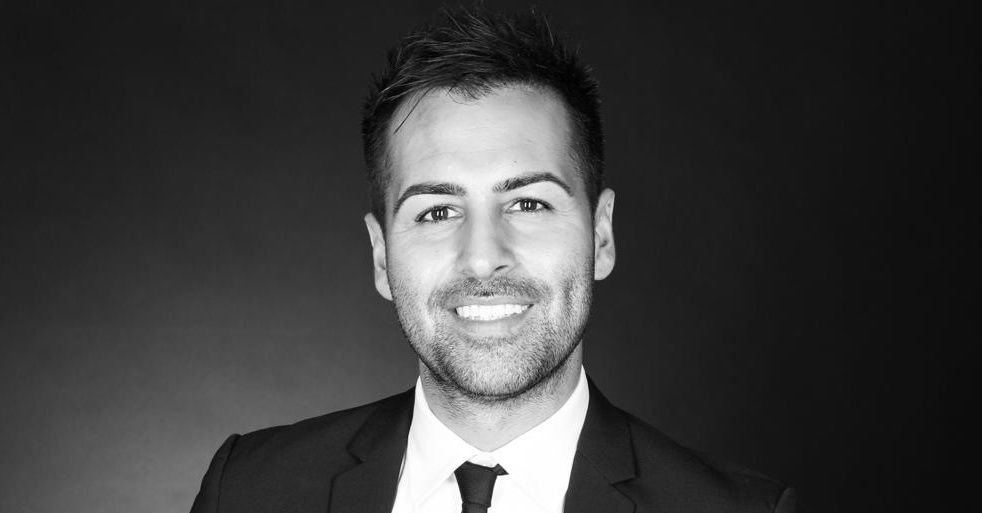'I'll be proud to finally become German': Foreigners react as dual citizenship law passes

After repeated delays, the coalition's landmark law allowing dual citizenship for people naturalising as German has passed parliament. Foreigners living here tell us they're excited, relieved, and a bit worried about long wait times - all at the same time.
Foreigners in Germany - some of whom have been resident in Germany for decades - wrote to The Local and took to social media to register their relief and excitement, after the Bundestag finally passed a long-awaited law allowing dual citizenship to all people naturalising as German.
READ ALSO:German parliament passes landmark dual citizenship reform
Previously, dual citizenship had been generally restricted, with certain exceptions allowed. These included people with EU passports, refugees, or people who were born as dual citizens of Germany and another country. Generally speaking, people from non-EU countries who wanted to naturalise as German had to give up their other passport in order to become German.
Friday's reform now allows dual citizenship for all and reduces the time someone will need to be resident in Germany before naturalising from eight years to five - with some especially well-integrated people able to naturalise after three.
Similarly, Germans who live abroad and wish to naturalise where they live can do so and keep their German passport without having to first apply for government permission - provided the country where they live also allows dual citizenship.
KEY POINTS: What you need to know about Germany's citizenship law reform
Have had all my documents in order, in a folder, that was left cold in 2023 when they stopped receiving applications. Then I heard about the dual citizenship reform and decided it was worth the wait anyways. Can’t believe it’s finally happening! 🤞🇩🇪
— ES 🇻🇪🇩🇪 (@elissus) January 19, 2024
"I will apply and will be proud to finally become German," Joe Del Borrello, a Berlin-based Construction & Design Manager tells The Local. Del Borrello is a dual Australian-Italian whose been living in Germany for close to ten years.
Without this reform, applying to become German would require Joe to give up his Aussie nationality - the country where he was born and raised. "A German passport is what I have been striving towards since arriving in Germany. This country best represents me as a person, where I am today, the country I now call home, and the place where I see myself in the future. But there are reasons I want to retain my other citizenships, that being my heritage and also that I have family living in those countries."
I'll gladly take it up. This country has accepted me, taught me a lot, it's now a part of who I am.
— Mike Stuchbery 💀🍷 (@MikeStuchbery_) January 19, 2024
READ ALSO: How powerful is the German passport?
Like Joe, for many foreigners The Local has been hearing from, Germany is where they've already made their home for years and where they intend to stay. But they also understand that unexpected life events can happen.
"If something happened to my family, I need to be able to go home and that may be harder if I gave up my passport," says Elizabeth, an American Senior Engineer whose been resident in Germany for 20 years. "I'm excited. It's been an issue for a long time."

Joe Del Borrello says he plans on staying in Germany in the future, but there's family reasons to keep his Aussie passport. Photo: Joe Del Borrello
Matt Bristow, from the campaign group British in Germany, says the law change will be good news for British citizens, many of whom weren't allowed to hold on to their British passport when becoming German because of the rule change when Britain left the EU.
"From a British perspective, tens of thousands were prompted by Brexit to become German and were lucky to be able to keep both citizenships. But for most Brits who arrived in Germany after 2012, this hasn’t been possible until today‘s change in the law.
"Speaking personally, I‘m delighted to see this law finally passed," he added. "As an EU citizen, I always felt that I belonged in Germany but Brexit made me feel like a foreigner for the first time. I’ve already had my citizenship application in for a while and so I hope to be one of the first to benefit from the new rules on dual citizenship. I have my fingers crossed that I will be able to vote in the European Parliament elections in June!"
For some, becoming German hits personal notes.
"It means I can truly connect with my German heritage," says Rick Hoffmann, who works in executive education in Berlin and has lived in Germany for over five years. "My family moved to the United States from Germany in the 1850s. It also means stability, as I've already been living, working, and paying taxes in Germany for over five years, but not having that permanent feeling, being always tied to some kind of temporary visa."

American Rick Hoffmann says he's excited to finally be able to apply to be German to connect with his heritage, as well as take part in elections. Photo: Rick Hoffmann
READ ALSO: What documents should you get after obtaining German citizenship?
Dual citizenship and German diversity
For Joe Del Borrello, Friday's reform also sends another signal of how Germany is changing.
"It's a positive step in the right direction for Germany and I hope it'll encourage an enhanced sense of community," he says. "It demonstrates Germany’s recognition that the country is comprised of people of different nationalities, races, and backgrounds."
Germany not allowing dual citizenship lies very much in an understanding of nationality as a loyalty test/pledge. Hyphenated identities (that are common in the US, for example) are not accepted easily in Germany. Let's hope we'll see a solid step towards changing that today.
— Gülay Türkmen (@gulayturkmen) January 19, 2024
EXPLAINED: How much does it really cost to apply for German citizenship?
'Participating in the democratic process is important'
Foreigners who write us say they're mainly excited about two things once they have their German passport - European citizenship and EU freedom of movement rights, and the right to vote.
"This is such a positive step for immigrants and refugees feeling like they can actively participate in Germany's democracy, and keep their ties to their country of origin, contributing to political processes there," says Dini Silviera, a Brazilian-Canadian consultant who has lived in both Cologne and Berlin during her decade-long stint in Germany. Although Brazil doesn't allow citizenship renunciation, Dini would have had to give up her Canadian citizenship to become German before this reform.

Dini Silviera, a Brazilian-Canadian resident in Germany for over ten years, is looking forward to applying for German citizenship. Photo: Dini Silviera
"Of course I'm going to vote! Participating in the democratic process is important!" says Rick Hoffmann."I think it's still important to vote in the United States both for me and my family, but I also very much want to participate in the voting process in Germany since the decisions made here directly have an impact on my life and those close to me here."
'My vote counts': How Germany's new legion of foreign voters see the election
Trepidation over wait times
Along with the excitement though, comes the fear over impending wait times. Foreigners we've spoken to say, being able to keep their previous passport isn't going to shorten the already long processing times - years in some cases - for citizenship applications in places like Berlin to Munich.
I have got all the documents ready, and I'm worried genuinely about how long the processing will take in Berlin!
— Adithya (@adithya_srini) January 19, 2024
"It will take absolutely forever," says The Local reader Elizabeth. "But it being possible is the first step."
Matt Bristow said he had concerns that the new law "does not solve is the problem of applications often taking years to process, particularly in larger towns and cities".
He adds: "The Bundesländer (German states) will need to take urgent action to ensure that local offices have enough staff to clear existing backlogs as well as cope with increased demand for naturalisation."
Caitlin Hardee, a US citizen based in Berlin, tells The Local: "After so many years in limbo with this issue, the prevailing feeling for me is generally a certain cynicism, tempered with moments of genuine hope and cautious happiness. I have to remind myself that for a long time, I never counted on dual citizenship becoming possible at all."
Caitlin said Germany seriously needed to figure out how to move applications along faster.
"What use is it to be technically allowed to become a citizen after five years, if you know your application alone is going to take two to three years to be processed? Me, I've been living and working in Berlin for well over 11 years at this point, and will submit my citizenship application when the new law drops, but would be astonished to find myself holding a German passport before 2026."
READ ALSO: How fast will Berlin's new citizenship office process applications?
With additional reporting from Rachel Loxton
Comments
See Also
Foreigners in Germany - some of whom have been resident in Germany for decades - wrote to The Local and took to social media to register their relief and excitement, after the Bundestag finally passed a long-awaited law allowing dual citizenship to all people naturalising as German.
READ ALSO:German parliament passes landmark dual citizenship reform
Previously, dual citizenship had been generally restricted, with certain exceptions allowed. These included people with EU passports, refugees, or people who were born as dual citizens of Germany and another country. Generally speaking, people from non-EU countries who wanted to naturalise as German had to give up their other passport in order to become German.
Friday's reform now allows dual citizenship for all and reduces the time someone will need to be resident in Germany before naturalising from eight years to five - with some especially well-integrated people able to naturalise after three.
Similarly, Germans who live abroad and wish to naturalise where they live can do so and keep their German passport without having to first apply for government permission - provided the country where they live also allows dual citizenship.
KEY POINTS: What you need to know about Germany's citizenship law reform
Have had all my documents in order, in a folder, that was left cold in 2023 when they stopped receiving applications. Then I heard about the dual citizenship reform and decided it was worth the wait anyways. Can’t believe it’s finally happening! 🤞🇩🇪
— ES 🇻🇪🇩🇪 (@elissus) January 19, 2024
"I will apply and will be proud to finally become German," Joe Del Borrello, a Berlin-based Construction & Design Manager tells The Local. Del Borrello is a dual Australian-Italian whose been living in Germany for close to ten years.
Without this reform, applying to become German would require Joe to give up his Aussie nationality - the country where he was born and raised. "A German passport is what I have been striving towards since arriving in Germany. This country best represents me as a person, where I am today, the country I now call home, and the place where I see myself in the future. But there are reasons I want to retain my other citizenships, that being my heritage and also that I have family living in those countries."
I'll gladly take it up. This country has accepted me, taught me a lot, it's now a part of who I am.
— Mike Stuchbery 💀🍷 (@MikeStuchbery_) January 19, 2024
READ ALSO: How powerful is the German passport?
Like Joe, for many foreigners The Local has been hearing from, Germany is where they've already made their home for years and where they intend to stay. But they also understand that unexpected life events can happen.
"If something happened to my family, I need to be able to go home and that may be harder if I gave up my passport," says Elizabeth, an American Senior Engineer whose been resident in Germany for 20 years. "I'm excited. It's been an issue for a long time."

Matt Bristow, from the campaign group British in Germany, says the law change will be good news for British citizens, many of whom weren't allowed to hold on to their British passport when becoming German because of the rule change when Britain left the EU.
"From a British perspective, tens of thousands were prompted by Brexit to become German and were lucky to be able to keep both citizenships. But for most Brits who arrived in Germany after 2012, this hasn’t been possible until today‘s change in the law.
"Speaking personally, I‘m delighted to see this law finally passed," he added. "As an EU citizen, I always felt that I belonged in Germany but Brexit made me feel like a foreigner for the first time. I’ve already had my citizenship application in for a while and so I hope to be one of the first to benefit from the new rules on dual citizenship. I have my fingers crossed that I will be able to vote in the European Parliament elections in June!"
For some, becoming German hits personal notes.
"It means I can truly connect with my German heritage," says Rick Hoffmann, who works in executive education in Berlin and has lived in Germany for over five years. "My family moved to the United States from Germany in the 1850s. It also means stability, as I've already been living, working, and paying taxes in Germany for over five years, but not having that permanent feeling, being always tied to some kind of temporary visa."

READ ALSO: What documents should you get after obtaining German citizenship?
Dual citizenship and German diversity
For Joe Del Borrello, Friday's reform also sends another signal of how Germany is changing.
"It's a positive step in the right direction for Germany and I hope it'll encourage an enhanced sense of community," he says. "It demonstrates Germany’s recognition that the country is comprised of people of different nationalities, races, and backgrounds."
Germany not allowing dual citizenship lies very much in an understanding of nationality as a loyalty test/pledge. Hyphenated identities (that are common in the US, for example) are not accepted easily in Germany. Let's hope we'll see a solid step towards changing that today.
— Gülay Türkmen (@gulayturkmen) January 19, 2024
EXPLAINED: How much does it really cost to apply for German citizenship?
'Participating in the democratic process is important'
Foreigners who write us say they're mainly excited about two things once they have their German passport - European citizenship and EU freedom of movement rights, and the right to vote.
"This is such a positive step for immigrants and refugees feeling like they can actively participate in Germany's democracy, and keep their ties to their country of origin, contributing to political processes there," says Dini Silviera, a Brazilian-Canadian consultant who has lived in both Cologne and Berlin during her decade-long stint in Germany. Although Brazil doesn't allow citizenship renunciation, Dini would have had to give up her Canadian citizenship to become German before this reform.

"Of course I'm going to vote! Participating in the democratic process is important!" says Rick Hoffmann."I think it's still important to vote in the United States both for me and my family, but I also very much want to participate in the voting process in Germany since the decisions made here directly have an impact on my life and those close to me here."
'My vote counts': How Germany's new legion of foreign voters see the election
Trepidation over wait times
Along with the excitement though, comes the fear over impending wait times. Foreigners we've spoken to say, being able to keep their previous passport isn't going to shorten the already long processing times - years in some cases - for citizenship applications in places like Berlin to Munich.
I have got all the documents ready, and I'm worried genuinely about how long the processing will take in Berlin!
— Adithya (@adithya_srini) January 19, 2024
"It will take absolutely forever," says The Local reader Elizabeth. "But it being possible is the first step."
Matt Bristow said he had concerns that the new law "does not solve is the problem of applications often taking years to process, particularly in larger towns and cities".
He adds: "The Bundesländer (German states) will need to take urgent action to ensure that local offices have enough staff to clear existing backlogs as well as cope with increased demand for naturalisation."
Caitlin Hardee, a US citizen based in Berlin, tells The Local: "After so many years in limbo with this issue, the prevailing feeling for me is generally a certain cynicism, tempered with moments of genuine hope and cautious happiness. I have to remind myself that for a long time, I never counted on dual citizenship becoming possible at all."
Caitlin said Germany seriously needed to figure out how to move applications along faster.
"What use is it to be technically allowed to become a citizen after five years, if you know your application alone is going to take two to three years to be processed? Me, I've been living and working in Berlin for well over 11 years at this point, and will submit my citizenship application when the new law drops, but would be astonished to find myself holding a German passport before 2026."
READ ALSO: How fast will Berlin's new citizenship office process applications?
With additional reporting from Rachel Loxton
Join the conversation in our comments section below. Share your own views and experience and if you have a question or suggestion for our journalists then email us at [email protected].
Please keep comments civil, constructive and on topic – and make sure to read our terms of use before getting involved.
Please log in here to leave a comment.